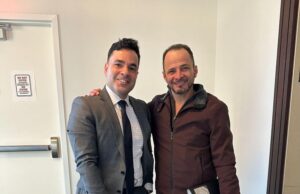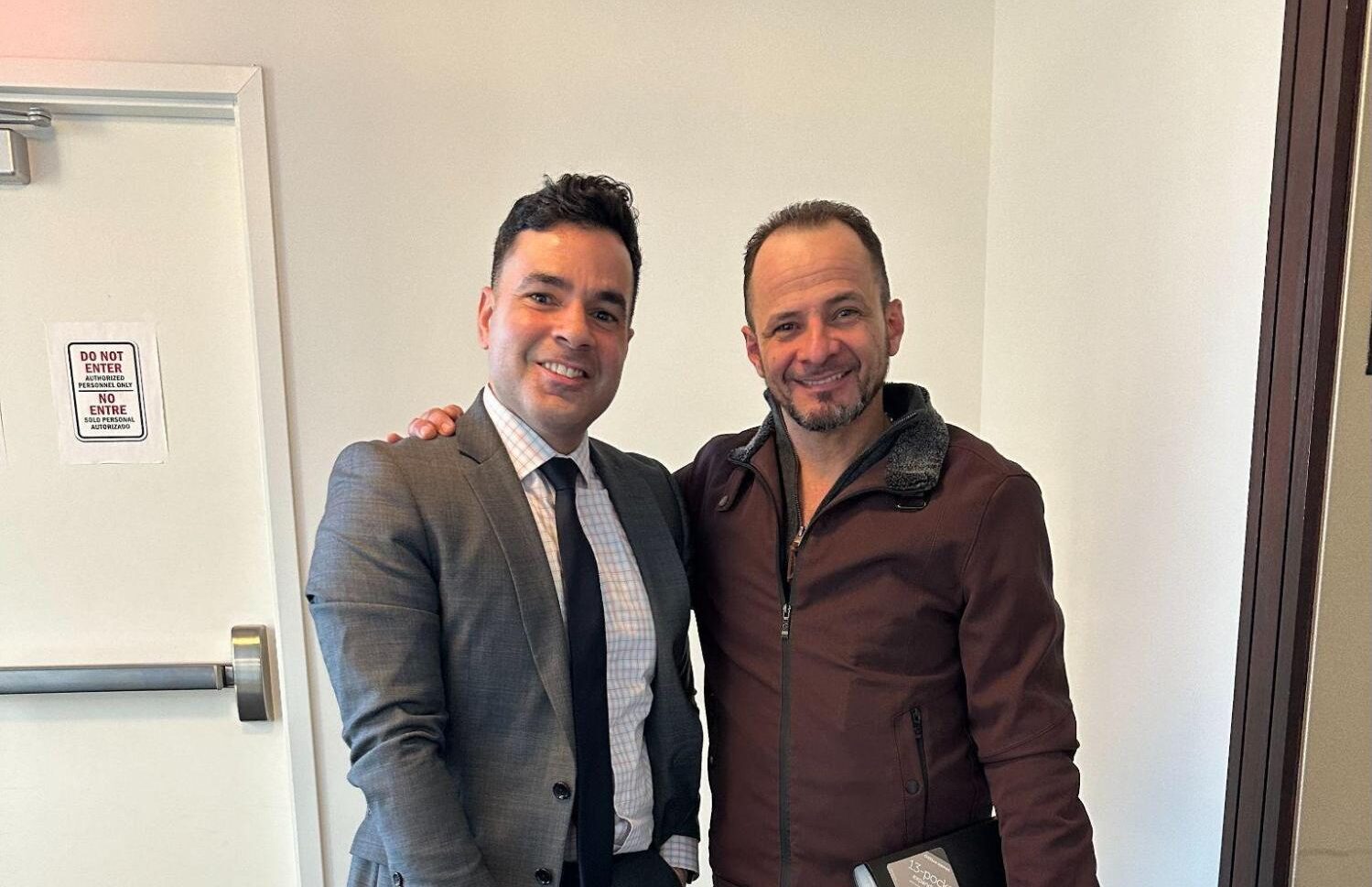Immigration Bond Lawyer
Fayad Law, P.C. helps clients secure the immigration bonds needed to get out of ICE detention centers.
Immigration Bonds
If you or a loved one is detained in an ICE detention center, you’re likely frightened and confused. You are unsure of the length of detention or if a bond is possible. The information surrounding these cases is confusing, making it challenging for a layperson to navigate the system. A Richmond immigration bond attorney can review the case and find out if a bond is an option. If it is, your attorney can argue for bond during a hearing, and if granted, post it on your behalf. Having an experienced attorney by your side can mean the difference between getting out on bond and languishing in an ICE detention facility.
Fayad Law, P.C. has more than 20 years of combined experience navigating these cases. We understand the complex ICE detention process and have a proven record of helping clients get out on bond.
Immigration Bond Eligibility
Undocumented immigrants and Green Card holders can qualify for immigration bonds in Virginia. You can likely get a bond as long as your case doesn’t involve:
- Aggravated felonies
- Suspected terrorism
- Possession of a controlled substance
- Crimes of moral turpitude
If you have been charged with possession of fewer than 30 grams of marijuana, you can still qualify for an immigration bond.
Why Choose Fayad Law, P.C.
- Covers All Aspects of Immigration Law – We help clients with citizenship and naturalization, appeals and bonds, asylum, and other aspects of immigration law.
- Multilingual – We are fluent in English, Arabic, French, Russian, and Spanish, allowing us to provide legal services to immigrants from around the world.
- More than 20 Years of Experience – Our experienced legal team understands the immigration system, and we use our legal experience and insight when representing our clients. Our first-hand experience as immigrants also helps our clients navigate the complex immigration system.
- Personal Attention – As a boutique law firm, we limit our caseload to ensure we can provide personal attention to each client that we serve.
- Ethical and Sound Legal Counsel – Nash Joseph Fayad has a reputation for providing ethical and sound legal counsel and was appointed to serve as Special Counsel to the Commonwealth of Virginia for all immigration matters.

Tell Us About Your Case
Ask A Question, Tell Us What Happened or Request a Free Consultation
or fill out the short form below.
Types Of Richmond Immigration Bonds
There are two main types of immigration bonds available. First, there is the delivery bond. The bond is paid to ensure that the charged individual appears at court hearings. If the individual fails to appear, he or she forfeits the bond. The immigrant can also be detained and deported after forfeiting the bond.
A voluntary departure bond is also an option. This bond is available to those who agree to leave the country within a set period of time. You can choose this bond if you intend to go back to your home country and don’t want to wait for removal proceedings to end. However, if you select this option, you must leave the country within the time frame. If you fail to do so, you’ll be sent back to ICE detention and lose the bond. Your Richmond immigration bond attorney will go over your options to help you choose the best path forward to getting out of ICE detention.
Protect Yourself Against Bond Scams
Sadly, some companies run bond scams to get money from immigrants. The companies claim that the only way to get an immigration bond is to wear a GPS monitoring device. The immigrants are forced to pay both the bond and a monthly fee for the device. The costs far exceed what they would pay for the bond. Attorneys general from various states, including Virginia, sued a bond company for running a scheme like this. Using a Richmond immigration bond attorney from Fayad Law, P.C. will protect you from getting scammed while obtaining a bond. Fayad Law, P.C. understands that you are frightened and vulnerable, and we will do everything in our power to help you secure a fair bond.
Cost Of An Immigration Bond
ICE considers various factors when determining the cost of a delivery bond. These bonds range from $1,500 up to thousands of dollars, depending on factors such as family ties, length of time in the United States, and criminal history. Departure bonds are normally set at $500. These bonds are lower because the immigrant promises to leave the country after being released from ICE detention, so he or she does not have to reappear in court. Your immigration bond attorney will state a case for a low bond, so you can get out of ICE detention.
Getting The Bond Back
You can get the cost of the bond back at the end of the court proceedings. Depending on the nature of the case, this could take a year or longer. If you have met the obligations of the bond, it will be returned to you in full. Your attorney can provide a timeline so you will know when to expect to receive your bond payment. The attorney will also discuss your obligations, so you can meet the demands for the bond and receive the full payment when the legal proceedings are over.
What Sets Fayad Law, P.C. Apart?

Firsthand Experience
as Immigrants

English, Arabic, French,
Russian, Spanish, and Farsi

Proven Track
Record of Success

Personal, One-on-One
Attention

You Stay Informed
at All Times

We Strive for Client
Satisfaction
FAQs - FREQUENTLY ASKED QUESTIONS
There are dozens of different types of visas available under the provisions of the Immigration and Nationality Act (INA), but they can all be placed in one of two categories: immigrant and nonimmigrant visas. The former is for individuals who are hoping to establish permanent residency with a green card and perhaps even to pursue the path to naturalization and citizenship. The latter is for those who are only planning a temporary visit to the United States, such as for the purpose of conducting business or attending school.
The INA sets limits on the number of people who will be permitted to immigrate to the United States each year using certain types of visas, while other visas are unlimited. Family immigration visas for the immediate relatives of U.S. citizens are available on an unlimited basis, while there are annual quotas set for the relatives of lawful permanent residents and extended family of citizens, with a maximum quota of 480,000. The number of employment immigration visas is limited to 140,000 per year.
Pathways to citizenship include service in the United States military and adoption, but a large percentage of all people who become citizens do so through the process of naturalization. The basic qualifications for naturalization include:
- Living in the U.S. as a permanent resident for 5 years (or 3 years for a spouse of a U.S. citizen)
- Being at least 18 years of age
- Living within the state where you will apply for citizenship for at least 3 months prior to the application date
- Being physically present in this country for at least half of the past 5 years
- Maintaining continuous residence in this country from the date you submit your application for naturalization
- Being able to read, write and speak English
- Have a basic understanding of U.S. government and civics
It is also necessary to supply evidence that you are a person of good moral character and are attached to the principles of the U.S. Constitution. We can assist you with proving these factors, as well as preparing your petition and helping you get ready for the tests.
In June of 2012, the Obama Administration directed the Department of Homeland Security (DHS) to begin applying a policy that is referred to as Deferred Action for Childhood Arrivals (DACA). Under deferred action, DHS is exercising discretion in its execution of the laws concerning deportation and removal of immigrants who are illegally present in the United States. Deferred action is not a change to the existing law, but is instead a change in the way that the law is being applied. You may qualify for relief under DACA if you were younger than 31 years of age on June 15, 2012, came to the U.S. before your 16th birthday, have continuously resided in this country since June 15, 2007 and are either currently in school or have already graduated from high school or earned your general education development (GED) certificate, among other criteria. With deferred action, you may be able to avoid being deported, though it does not grant any change of immigration status.
In its review of immigrant visa petitions, the U.S. Citizenship & Immigration Services (USCIS) weighs factors related to the ties that the prospective immigrant has in the United States and the reasons why he or she wants or needs to come to live in this country. For example, a family immigration petition will not be approved unless the foreign national has immediate relatives such as a spouse, mother or father, child or sibling already living here as a citizen or green card holder. An employment immigration petition is more likely to receive approval if the applicant has a job offer in this country and is coming to fill a position that cannot reasonably be filled from the local labor market. A foreign national who is fleeing persecution in his or her home country may be granted an immigrant visa as a refugee or asylee.
There are many strategies for challenging a removal action. If the proposed deportation is based on a criminal conviction, it may be possible to appeal the conviction in order to have it overturned. Another option is to petition for cancellation of removal, a type of immigration relief which is available to people who are of good moral character and whose deportation would subject a family member who is a citizen or permanent resident to extreme hardship. The key to success in stopping deportation is to take immediate action by hiring a Virginia immigration attorney from our firm as soon as possible. Contact us now at Fayad Law, P.C. for a confidential consultation and to let us get started on your case!
Fayad Law, P.C. maintains offices in Richmond and Fairfax, Virginia. We work with individuals, families, and businesses across the world, providing them with assistance in resolving the legal issues involved with helping their loved ones and employees to immigrate to the United States. We work directly with foreign nationals living abroad, guiding them through the process of obtaining immigrant and nonimmigrant visas for entry to the U.S.
Real Clients, Real Testimonials
Contact Us Today
Have questions about your rights? Ready to discuss your immigration case? Contact Fayad Law, P.C. now.


















